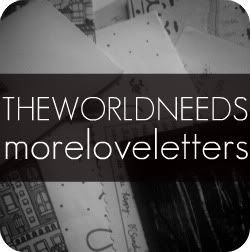I've been reading quite a bit this year, considering everything else I've been doing. I certainly don't feel lazy, quite the opposite. After seeing the YouTube video by Amy Krouse Rosenthal over at Leah's blog, I ran out and bought (actually, I ran to my computer and ordered) some of her books. The two for adults that are still available, "Encyclopedia of an Ordinary Life" and "The Mother's Guide to the Meaning of Life", are similar, some of the chapters are almost clones of one another. Maybe that was more obvious to me because I read them back-to-back. The "Encyclopedia" was the antithesis of "The Know-It-All" book I read. Both were funny in places, but this one was more of a personal encyclopedia, choice words interpreted by AKR's life experience. Since she has asked not to be quoted without prior consent, I'll say I found her paragraphs on death the most moving. And one of the funniest that made me just nod my head in agreement (after I stopped crying from laughing so hard) was her piece on the instant bad mood, complete with a chart that starts with what she's doing while humming along in a good mood, followed by "the incident", resulting in an instant bad mood. It is all so very human, and things that have been my experience as well. I also bought a number of her children's books, "Cookies, Bite-size Life Lessons", "One of Those Days", "It's Not Fair", and my son's favorite,
"The OK Book". They are all delightful. Riley likes The OK book because of the art - so simple, the word "OK" turned all different ways to represent a human figure trying out all kinds of things. For some reason it just tickles his fancy. I am really looking forward to seeing what evolves from her "Lovely" project.
Another book I've just finished is, "The Secret Spiritual World of Children" by Tobin Hart. It is as much a parenting book as it is one about mystical experiences of children. It is full of anecdotes of children having visions, memories of other lives, extreme compassion and empathy, none of which I found particularly surprising. I also found it insightful in how to raise my own son as a questioning person. Raised as a Protestant, I haven't gone to church regularly in decades but my spiritual life and growth has been very rich nevertheless. But questions still dog me about how we live our life, how much religion should be put into Christmas, does it center around the virgin birth or can it be seen and lived as a time to be still, generous (in what ever way you can and not necessarily monetarily), kind, mindful, an attitude to really be adopted more than once a year. By Riley's age I had been in Sunday school a few years and was well enough versed in bible stories. We've had a death in the family in recent years but not one that was so close that it touched Riley more than superficially. He asks questions about ghosts quite a bit and about other worlds. And I always try to explain things to him in a way that doesn't leave him fearful but I can't say for sure one way or another what is true or not. It's can be a tricky situation.
A quote, "....
this is the lesson of authenticity and integrity for children. Their most fundamental spiritual task is to become who they are, just as it is for us as adults. This begins by facing, owning and gently accepting who we are". I like that Hart doesn't always separate the issues children have from adults. As a parent, I often feel inept, without answers and just mucking it all up.
Another quote from the book from the poet Rainer Maria Rilke:
Be patient toward all that is unresolved in your heart Try to love the questions themselves. Do not now see the answers, which can not be given because you would not be able to live them - and the point is to live everything . Tobin suggests not always answering those difficult questions directly, instead asking your child what
they think, giving them time to do the thinking and then re-opening the conversation at another time.
Another quote:
We never parent alone. Beyond whatever partner or community we may have, the child is our partner in parenting. And still another one:
Development is often like a spiral in that we revisit similar themes in our life, but at new levels of the spiral...The challenge is to heal and learn as we go, to 'get' another piece of the learning at each new opportunity.I was glad I read it and coming in at just under 300 pages, I did it in about ten days. A good investment of my time.































































